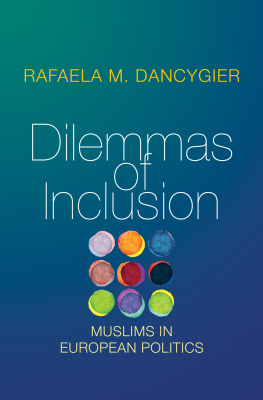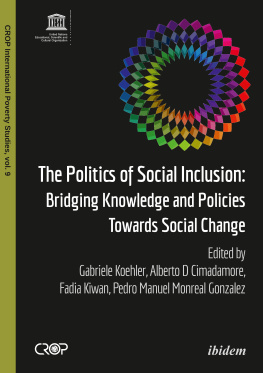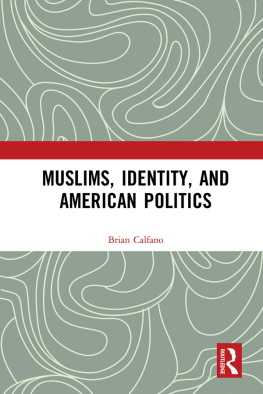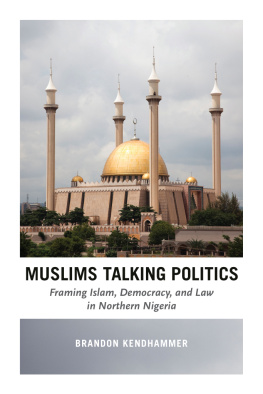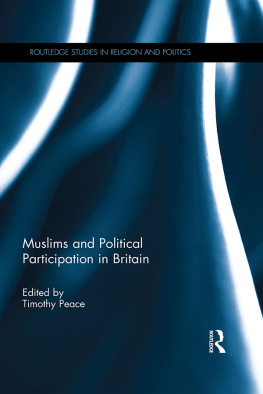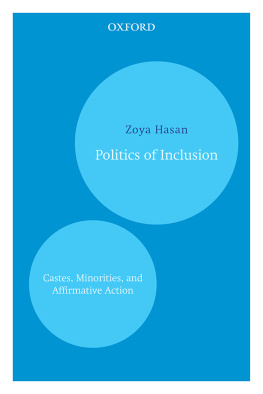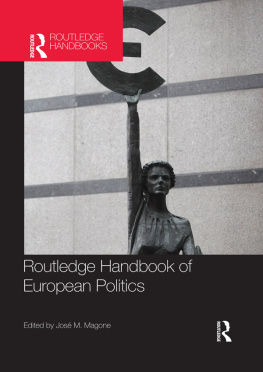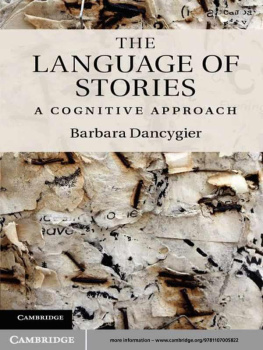Copyright 2017 by Princeton University Press
Published by Princeton University Press,
41 William Street, Princeton, New Jersey 08540
In the United Kingdom: Princeton University Press,
6 Oxford Street, Woodstock, Oxfordshire OX20 1TR
press.princeton.edu
Cover images courtesy of Shutterstock
All Rights Reserved
Library of Congress Cataloging-in-Publication Data
Names: Dancygier, Rafaela M., 1977author.
Title: Dilemmas of inclusion : Muslims in European politics / Rafaela M. Dancygier.
Description: Princeton : Princeton University Press, [2017] | Includes bibliographical references and index.
Identifiers: LCCN 2017007689| ISBN 9780691172590 (hardcover : alk. paper) | ISBN 9780691172606 (pbk. : alk. paper)
Subjects: LCSH: MuslimsEuropePolitical activity. | Islam and politicsEurope. | Political partiesEurope. | Representative government and representationEurope. | MuslimsEuropeSocial conditions.
Classification: LCC D1056.2.M87 D35 2017 | DDC 324.088/297094dc23 LC record available at https://lccn.loc.gov/2017007689
British Library Cataloging-in-Publication Data is available
This book has been composed in Adobe Text Pro and Gotham
Printed on acid-free paper.
Printed in the United States of America
10 9 8 7 6 5 4 3 2 1
ACKNOWLEDGMENTS
This book began with the observation that ethnic politics is alive and well in European cities today. In immigrant enclaves, bonds of ethnicity, religion, and kinship that structure social relationships seamlessly spill over into the electoral arena. Whether or not a candidate hails from the same home village or belongs to the same kinship group can sway voter decisions and swing election outcomes from Birmingham to Brussels.
That such bonds can be activated during elections is of course nothing new; but that they are so powerful and decisive in advanced democracies with mature electoral institutions, well-functioning bureaucracies, high levels of economic development, and extensive welfare states is an important reminder that what some consider to be premodern ties remain relevant and useful even in highly modernized states.
This insight led to another observation: Political parties that campaign on modern, progressive platforms might also have to appeal to groups who are neither progressive nor popular among core voters. As I later highlight, this tension is also not a new one. It characterizes minority political inclusion across countries and goes back many decades. We know little, however, about how parties resolve these tensions in the contemporary European context, where the large-scale settlement of Muslim communities presents political parties with sharp inclusion dilemmas. Much of this book is therefore devoted to exploring how parties incorporate Muslim candidates and voters and to illuminating the consequences that emanate from this inclusion. To do so, I also propose more general arguments about how and when parties decide to bring in minority electorates.
In writing this book, I have benefited from the advice and support of many individuals. Big thanks go to Elizabeth Saunders who over the course of many phone calls not only helped me realize that my interest in European ethnic politics could easily sustain a book, but also offered numerous valuable ideas along the way. I am also very grateful to Ken Scheve for organizing a book workshop that improved the manuscript immeasurably. His comments, along with those by the other participantsThad Dunning, Anna Grzymala-Busse, David Laitin, Dan Posner, Jonathan Rodden, and Jessica Trounstinewere incredibly helpful. At Princeton, Joanne Gowa was always generous with her time and advice, and her frequent reminder that books can be short helped me get this one off the ground (though it didnt end up being so short). Raymond Hickss assistance with all matters quantitative was equally indispensable.
Additional constructive criticism came from Claire Adida, Alcia Adser, Quinn Albaugh, Mark Beissinger, Carles Boix, Winston Chou, Romain Ferrali, Jeremy Ferwerda, Lucila Figueroa, Dan Hopkins, Amaney Jamal, Jytte Klausen, Evan Lieberman, Grigo Pop-Eleches, Carlos Velasco Rivera, Tom Romer, Rory Truex, and Deborah Yashar. I thank them all for their helpful input. Seminar participants at George Washington University, Harvard University, MIT, Princeton University, Stanford University, Temple University, University of British Columbia, University of California San Diego, University of Michigan Ann Arbor, University of Oxford, and Yale University gave important feedback as well. Several terrific research assistantsIdir Aitsahalia, Sebastian Pukrop, and Audrye Wonghelped me gather relevant data and provided useful comments. Yotam Margalit deserves special thanks for letting me use the manifesto data we had collected together for another project.
At Princeton University Press, two anonymous reviewers provided excellent advice. Conversations with Eric Crahan improved the framing of this book, and I am also very grateful for Erics skillful managing of the review and publication process. Jay Boggis and Debbie Tegarden offered very helpful edits.
Finally, my family has been a source of constant support, laughter, and love, and my deepest gratitude goes to my husband, Jason, and our two children. I began thinking about this books topics when our son, Jacob, was just born. He was soon joined by his sister, Maya. I dedicate this book to the two of them.
DILEMMAS OF INCLUSION
Introduction
Three days before the 2015 UK General Election, the Labour Party found itself in hot water: It had to defend a Birmingham campaign event that featured separate seating for men and women. The rally, attended by a majority Muslim audience, was meant to shore up Labour support in Birminghams ethnically diverse parliamentary constituencies, which are home to more than 200,000 Muslims. Instead of promoting its platform, the Party had to respond to accusations that in aggressively courting the Muslim vote it was turning its back on a century or more of advancements for womens rights. As pictures of the segregated seating arrangements circulated through the news media, a Labour spokesman meekly countered that Labour fully supports gender equality in all areas of society and all cultures. Most of the charges were made by political opponents seizing an opening to damage the party just before polling began, but they stung for a reason: Over the last several decades, the Labour Party has made strong appeals to Muslim voters, and in its pursuit of votes it has chosen to empower patriarchal, traditional forces much more than it has promoted egalitarian, progressive voices.

